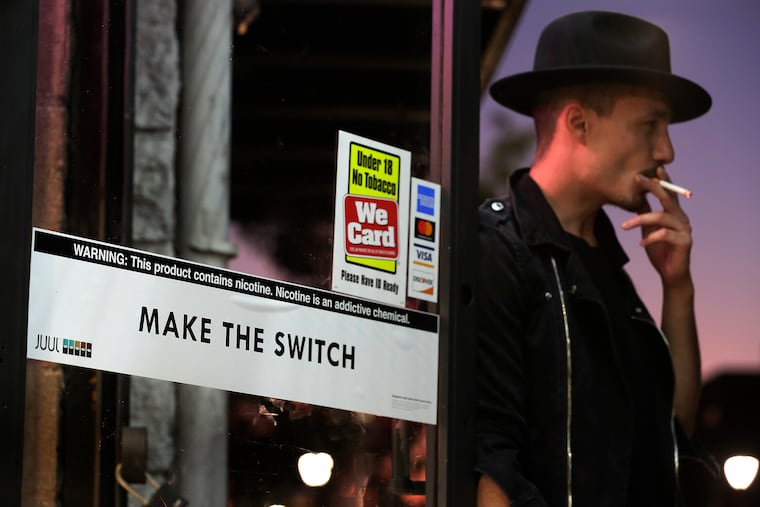UPenn is sharing a $9.6M grant to study nuanced messaging about tobacco use
Can we talk up lower-risk tobacco products to smokers without pushing them on non-smokers? A new grant UPenn is sharing with Johns Hopkins aims to find out.

Researchers at the University of Pennsylvania are sharing a $9.6 million grant to study how to talk about tobacco products that appear to cause less harm than cigarettes.
So far, several of these “modified risk tobacco products” — such as low-nicotine cigarettes and some types of smokeless tobacco — have received approval from the U.S. Food and Drug Administration to be marketed as such.
During the study, Andy Tan at Penn’s Annenberg School for Communication and his colleagues will investigate how to convince the nearly 30 million U.S. adults who smoke cigarettes to try these less harmful forms of tobacco without inadvertently nudging nonsmokers (especially young people) to do the same.
“It is an important challenge to be able to meet these dual goals,” said Tan, director of Annenberg’s Health Communication & Equity Lab.
Tan explained that the tobacco messaging will come directly from the FDA, which wants researchers to conduct “careful testing before [the messages] are unleashed in the real world.” His Penn team will collaborate with researchers at Johns Hopkins Bloomberg School of Public Health in Baltimore, Md.
The research — funded by the FDA and the National Institutes of Health — will include large surveys. It will also study how our brain perceives different types of tobacco messaging, using neuroimaging technology and eye-tracking to determine what catches people’s attention about print ads, social media posts, or whatever format the messaging takes.
Finally, the study will track whether the messaging leads to changes in behavior, such as convincing cigarette smokers to switch to tobacco products the FDA considers to be of lower risk.
Every year, nearly half a million people in the U.S. die due to smoking. Recently, the FDA has allowed over a dozen tobacco products to be marketed as having a “modified risk,” including cigarettes that contain 95% less nicotine.
The approach has been criticized, however. The American Cancer Society opposes the “modified risk” designation, stating that “all tobacco products are unsafe, including those the FDA decides are permitted to use a modified risk claim.”
In 2020, Tan launched the Health Communication & Equity Lab to study the impact of marketing on marginalized groups. In one project, they determined that rates of e-cigarette use were higher in high school girls of color who identified as lesbian than among girls of color who said they were straight. The researchers attributed this pattern, in part, to companies’ decision to target e-cigarette marketing to LGBTQ people, including placing advertisements and promotions in LGBTQ venues or events.